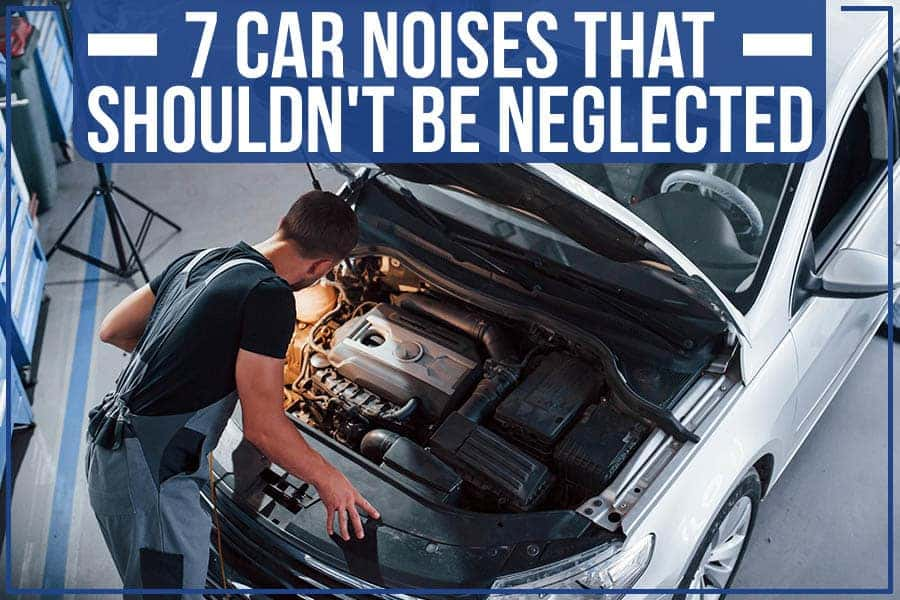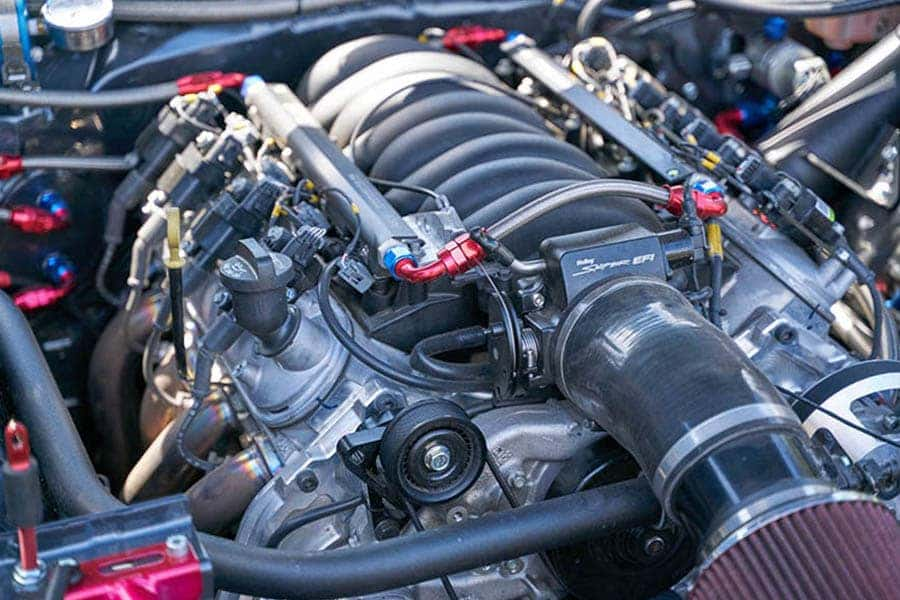Key takeaways:
- Car noises can signify something serious going on with your car.
- It’s crucial to get your car checked out by a professional as soon as you notice any odd noises. Some common car noises that shouldn’t be ignored include squealing brakes, grinding gears, and clicking sounds.
- Suppose you experience any of these sounds emanating from your car. In that case, you better get your car to an authorized auto dealership for immediate repair & service.
There are a lot of strange and seemingly unexplainable noises that can come from your car. While some might cause a minor concern, others should rightfully send up red flags and indicate that it’s time for a trip to the mechanic.
In this post, Jerry Ulm CDJR will outline seven such car noises you shouldn’t neglect and what you can do to mitigate them. Keep your ears open for these noises; if you hear them, bring your car in for a check-up!
Noise 01: Knocking from The Engine
One of the most worrying car noises is a knocking sound from the engine. This could indicate something wrong with your car’s connecting rods or bearings. Carrying on driving with this issue could cause extensive damage to your engine, so it’s best to take it to a local mechanic as soon as possible.
However, don’t be alarmed if you hear a faint knocking sound. This could be your car’s piston rings expanding and contracting due to the engine’s heat.
Noise 02: Hissing
There should never be any hissing from a car. You shouldn’t disregard this noise since it is not normal. When the engine hisses, one of the rubber hoses likely has a fracture, hole, or other types of defects. Hoses transport everything from air and hydraulic fluid to engine coolant to keep your automobile operating properly. A hiss frequently indicates a break in the hose, and air or steam is trying to come out of it.
Engine hoses can wear out with time and are not expensive to replace. However, the real problem is identifying the location of the leak. The best method to identify is to ask a friend or family member to listen to the noise while you rev up the engine. If you still can’t find it, take your car to a mechanic and have them check it out.
Hissing could also indicate overheating of the engine. Check your temperature gauge for overheating. Don’t keep driving if you notice steam or if the engine overheating warning light comes on. Locate a safe stop to make a call for assistance while your engine cools down.
Noise 03: Squealing, Scraping, Or Grinding When You Apply the Brakes
This often indicates that your brake pads are getting low and need to be replaced.
The pads sit between the caliper (which holds the pads) and the big disc rotor. When you press the brake pedal, fluid pressure forces the caliper to squeeze the pads against the rotor. The automobile eventually stops due to the wheel’s slowing due to friction between the pads and the rotor.
When your brake pads get low, they no longer provide enough cushion between the caliper and the rotor, so you’ll hear a squealing noise when you press on the brakes.
When this squealing escalates to scraping or grinding, the pads are completely worn out, and you’re now damaging the rotors. Keep driving with damaged pads and rotors. You’ll eventually have to replace them, which is much more expensive than replacing the brake pads.
Noise 04: Rattling Noise
A rattling noise can be extremely annoying, and it can indicate a serious problem with your car. If you hear a rattling noise from under the hood, it could mean something is wrong with your exhaust system. Specifically, the catalytic converter or the heat shield around the converter could be loose.
If you hear a rattling noise coming from your suspension, it could mean that your shocks or struts are worn out. And if you hear a rattling noise from your engine, it could indicate that your piston rings are worn out.
Noise 05: Squealing During Accelerating
If you hear a shrill squealing noise when you go forward, it’s likely that your fan belt is loose or worn out. The fan belt drives the water pump and the alternator, so if it’s not working properly, those components will not work properly either.
If your fan belt is loose, a skilled mechanic can tighten it up, which should silence the noise. You’ll have to invest money in a new belt if the old one is worn out.
This type of noise is so high-pitched and occurs as soon as you begin to speed that you can’t help but hear it. Avoid driving for an extended period without having the problem diagnosed since this might result in a breakdown.
Noise 06: Loud Bang
A loud bang indicates trouble. Although it will be difficult to ignore, remain calm if you hear the sounds while driving. A bang might indicate that your engine is backfiring, which could be brought on by a blocked air filter, fuel line, or carburetor. If the problem isn’t resolved, your engine might eventually stall.
Noise 07: Noise When Changing Gears
You shouldn’t hear any noise as you shift gears; it should be smooth and simple. Any clanking or other loud noises might indicate danger when you shift into a new gear. Either the clutch is broken, or it might be the transmission system. Set up some diagnostic testing straight away because it can turn out to be a major issue. Ignoring it might result in significant repair costs.
Final Thought:
Keep in mind that car noises can be an indication of a much bigger problem. Any rattling, humming, or clicking should be inspected by a professional as soon as possible. Car sounds should never be ignored!
If you have any inquiries regarding the state of your car now, Jerry Ulm, CDJR, serving St. Petersburg, FL, can help!
Our automotive repair professionals can assist you with all your service requirements, whether you require a quick oil change, a tire rotation, wheel alignment, or a significant repair.

